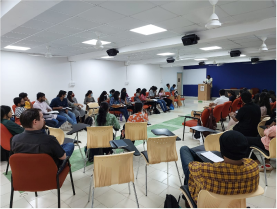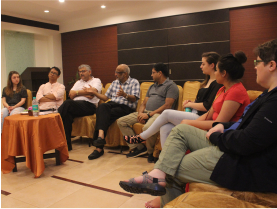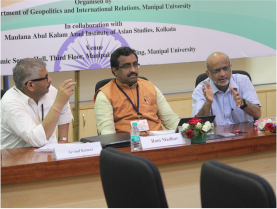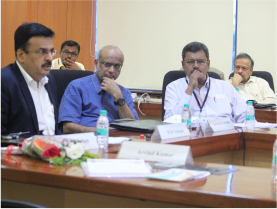



Geopolitics: Unravelling India’s Engagement with the World
The program aims to offer a glimpse of India’s rise as a major power. It will touch upon its history moving through the political landscape and highlighting the important moments globally which shaped the country into the power it is today. India’s engagements with the world have been shaped by historical and civilizational factors and this would be reflected in its relations with its neighbours, with major powers such as the US and China. The course would also briefly explain India’s global engagement and contributions with the Global community through the United Nations and other regional organizations in promotion of Peace and Cooperation in the world
Learning Outcomes
- Develop knowledge on Indian politics and policy making
- Recognize India’s civilizational connect and regional political exchanges
- Debate on India’s rising power status and challenges
- Develop an appreciation for India’s global contributions for the world peace and stability through its international exchanges
Course Content
India’s History and Culture – History, religious, linguistic diversity, political culture – Indian Politics and Economy – Political institutions, democracy, Party systems, politics – Understanding India’s Geopolitical Environment – India’s geopolitical environment, geopolitics, India and the world -India’s National Security – Managing the security of India in a complex international world – India’s worldview and foreign policy – How India and the world view each other in the global stage – India and its Neighbourhood – Learn about India’s relations with its neighbours Pakistan and China – India and Extended Neighborhood – Learn India’s cultural, historical and civilizational ties and how it is shaping India’s relations even today – India and the major powers – India’s relations with USA, Russia and China – India and the Global South – India’s championing of Global rights as a leader of the Global South. Special focus on Africa and Latin America – India and Multilateralism – India’s multilateral engagements at the global as well as the regional level. Understand the UN, SAARC, BRICS, Quad, SCO
Name of the Coordinators



Distinctive Features
- Blends an understanding of policy making and understanding of India from the Indian perspective
- Experienced faculty from diverse backgrounds
- Multi-dimensional and interdisciplinary learning experience
- Methodology and interactive sessions with key policy and decision makers
Offered by
Department of Geopolitics and International Relations (GIR), MAHE
